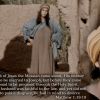A terrible drought gripped the Luangwa Valley. The rivers and lakes were dry. Only a few mud holes existed. In one of these mud holes, a thirsty and mature water buffalo stepped into quicksand and was trapped in mud that covered all four legs. The water buffalo could not move. Any attempt to move caused the animal to sink hopelessly a bit deeper into the mire. It was an intractable situation for the buffalo.
As the buffalo bellowed loudly, his incessant crying alerted the "King of the Beasts." Three very muscular and hungry lions — one male and two females — laboriously waded through the mud and mounted the fleshy backside of the water buffalo and began to eat him. As they did, they also began to sink in the mire with their prey. Each bite caused their weight to descend a few centimeters and more assuredly brought them closer to their own death.
As they dined, one large lioness came to the edge and very cautiously pawed at the mud. She took a few steps into the mud, but the sinking sensation alerted her to back off and leave the self-destructive conquest to the others. She overcame the temptation and overpowering instinctive drive and lived for another day. Meanwhile, the three cats devouring the buffalo eventually sunk to their own deaths in a natural grave of unforgiving mud.
This reminds me of our lives. Our greed and addiction for power can, and often, lead us into similar danger. Too often, the prize seems like an easy target. Perhaps it requires a risk to get to that prize. Calculations are necessary. Most often the risks are obvious and not worth the effort. But on other occasions, on we go plunging headlong toward our precious prize. For a few moments, we thump our chests and believe we are the conquerors. We rest on the back of the beasts and help ourselves. Unknowingly, we sink, but the taste is too gratifying and we do not notice our own impending destruction. We continue until we realize all at once that we now have a greater problem and we have gone too far to change the inevitable.
Honestly, our blind and ambitious pursuit was not safe to begin with, but we reasoned that it was possible. We could not control our appetites long enough to survey the risks and rewards, the dangers and the potentialities, the rightness and wrongness of our goal. Then all at once, we realize that the devoured beast is no longer worth our attention and effort. We recognize that we have lost our capacity to devour and depart with all the vitality we had acquired. We are not even sure we will survive, stuck in the mire of our own mess. Even if we do survive, others must work our rescue, carry our weight, and cover our losses. We end up damaging the whole pride. We also damage our families. Ultimately, we damage our nation.
Really, isn't it worth the time to think about the best way to pursue our prey ... our goals ... our achievements? Will we continue to plunge headlong into the muddy slush that snares all of its victims just because we've found an easy target? Perhaps, the smart lioness is the best example. Don't go in there! There are better prospects elsewhere and better things to do. They may not be presented to us as such an easy target or such an easily acquired feast, but they also won't lead us to be trapped and destroyed by our unrestrained, unexamined, and uncontrolled desires.
It is the evil things a person wants that tempt that person. His own evil desire leads him away and holds him. This desire causes sin. Then the sin grows and brings death. (James 1:14-15 ERV)








Reader Comments
Archived Facebook Comments